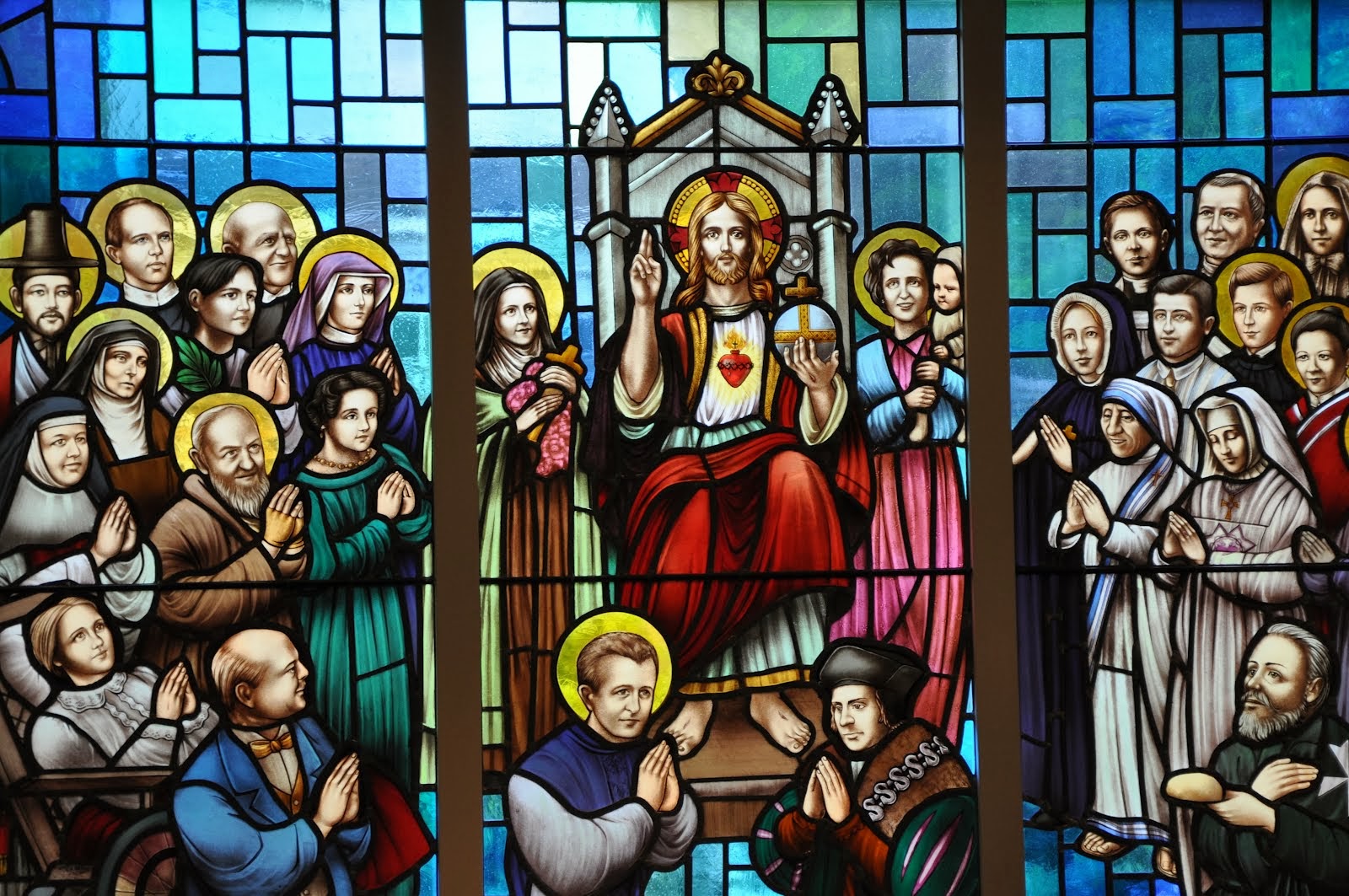
“If you have begun to act well, do not turn back through constraint of the enemy, for your endurance destroys the enemy. Those who put out to sea at first sail with a favorable wind. Then the sails spread, but later the winds become adverse. Then the waves toss the ship, and the rudder no longer controls it. But when in a little while there is calm, and the tempest dies down, the ship sails on again. So it is with us, when we are driven by spirits who are against us. We hold to the cross as our sail and so we can set a safe course.” St. Syncletica (4th century)
“Perhaps you wonder. ‘Why are the wicked joyous? Why do they live in luxury? Why don’t they have to strive as I do?’ The reason is that they who have not signed up to strive for the crown are not required to undergo the labors of the contest. Those who haven’t gone down to the track don’t smear themselves with oil, nor get covered with dust. Trouble comes only to those on their way to glory. The perfumed spectators prefer to watch, not to join the struggle, nor to endure the sun, the heat, the dust, and the rain.” St. Ambrose of Milan (4th century, Doctor of the Church)
“Our pilgrimage on earth cannot be exempt from trial. We progress by means of trial. No one knows himself except through trial, or receives a crown except after victory, or strives except against an enemy or temptations.” St. Augustine of Hippo (4th-5th centuries, Doctor of the Church)
“It is in trials that the just man finds his strength. Thus did the saints wage war against sin.” St. John Chrysostom (4th-5th centuries)
“…you carry a large sum of gold about you, take care not to meet any highwaymen [robbers]. In this life there is nothing certain: we are in a continual warfare, and, therefore, ought to be on our guard day and night. We sail in a tempestuous sea that threatens us on every side, and in a poor leaky vessel: the devil, who aims at nothing less than our destruction, never ceases to increase the storm, to overwhelm us thereby, if he can; hence it was that the Apostle gave this precaution, even to the virtuous: ‘Let him that thinketh he standeth, take heed lest he fall’ (1 Cor 10:12).” St. Jerome (4th-5th centuries, Doctor of the Church)
“All of us who enter the arena of the faith are committed to fight against evil spirits.” Pope St. Gregory the Great (6th-7th centuries, Doctor of the Church)
“Temptations against the faith aim directly at the understanding, striving to draw it into argument, to occupy and absorb it. Do you know what to do while the enemy is wasting his energy trying to scale the intellect? Make a sally through the gates of the will and charge him roundly; when the temptation against the faith presents itself in order to draw you into argument, saying, How can this be?…(face him) boldly while you cry out with heart and voice, Traitor! Wretch! You have left the Church of the angels and you are trying to get me to leave the Church of the saints! You are disloyal, faithless, perfidious! You gave the first woman the apple of perdition and now you want me to taste it too! ‘Get thee behind me, Satan; it is written, thou shalt not tempt the Lord thy God,’ No, I will not argue, I will not dispute you. May Jesus reign supreme, I believe in Him; may the Church triumph, I cleave to her. Speak to Jesus Christ and to the Holy Spirit in words which will be given to you.” St. Francis de Sales (16th-17th centuries, Doctor of the Church)
“Fight like a strong soul if you wish to obtain the reward of strong souls.” St. Pio of Pietrelcina (19th-20th centuries)
“Absence, isolation: trials for your perseverance. Holy Mass, prayer, sacraments, sacrifices, communion of saints: weapons to conquer in the trial.” St. Josemaria Escriva (19th-20th centuries)
“We are now standing in the face of the greatest historical confrontation humanity has ever experienced…We are now facing the final confrontation between the Church and the anti-church, between the Gospel and the anti-gospel, between Christ and the antichrist. This confrontation lies within the plans of Divine Providence. It is, therefore, in God’s plan, and it must be a trial which the Church must take up, and face courageously…We must prepare ourselves to suffer great trials before long, such as will demand of us a disposition to give up even life, and a total dedication to Christ and for Christ. With your prayers and my prayers, it is possible to mitigate the coming tribulation, but it is no longer possible to avert it, because only thus can the Church be effectually renewed. How many times has the renewal of the Church sprung from the shedding of blood? This time, too, it will not be otherwise. We must be strong and prepared and trust in Christ and in His holy Mother and be very, very assiduous in praying the holy rosary.” Pope St. John Paul II (20th-21st centuries)
